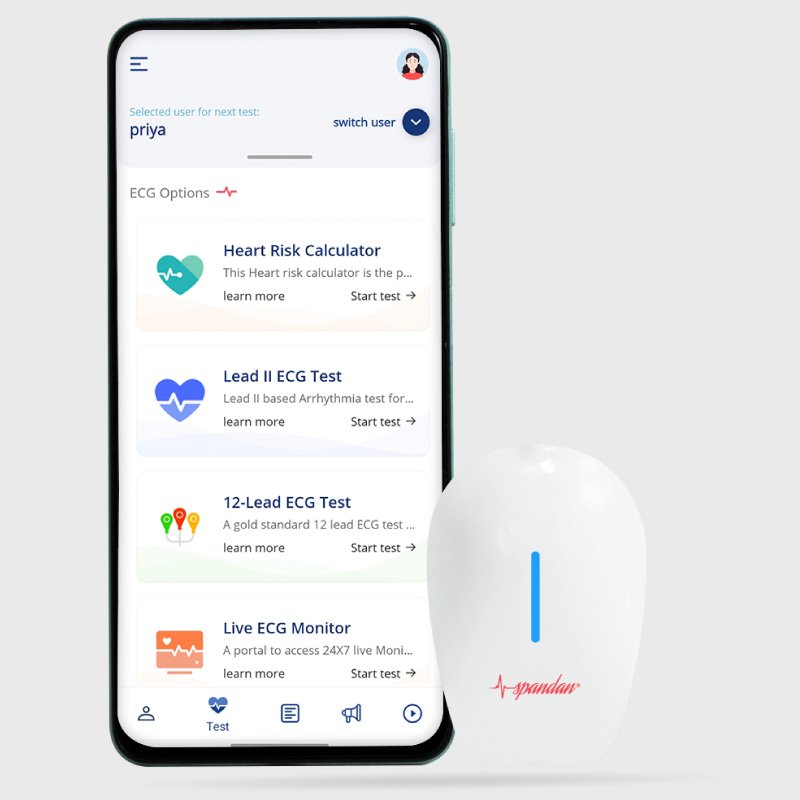
Author:- Mr. Ritesh Sharma
Fever is a condition that people typically experience in day-to-day life. However, one concern about this condition is its effect on heart health. Some people tend to wonder: does heart rate increase in fever? In a typical scenario, a fever triggers a plethora of physiological changes in the body. Among these physiological changes, an elevation in the heart rate is extremely pivotal and sparks a fascinating debate in the realm of healthcare.
It goes without saying that an intricate system controls all the functions of the human body. Hence, this system tends to get perplexed during a fever. As the temperature of the body shoots, a lot of organs of the body get affected. However, nothing concerns people more than the effect of fever on the most essential organ of the body, i.e. the human heart. So, does heart rate increase in fever? And if so, what are its clinical implications? We will examine this and more throughout this blog.
Understanding Fever
Before trying to decode: does heart rate increase in fever, let us have a deep understanding of the meaning of fever. Let’s do this by busting an age-old myth. Fever is not a disease but rather a symptom, typically signaling an underlying infection or inflammation. The mechanism of this symptom is rather complex. When the body detects pathogens, such as bacteria or viruses, it initiates a series of defense mechanisms, including the release of pyrogens, i.e. substances that reset the body’s temperature set-point in the hypothalamus, leading to an increase in core body temperature.
The Pivotal Role of the Autonomic Nervous System
Since the heart rate increases during the fever depends on the physiological changes in the body, the autonomic nervous system plays an important role in this. The autonomic nervous system of the body regulates all of its involuntary activities, including the increase of heart rate. The autonomic nervous system of the body consists of two branches, the first branch is the sympathetic nervous system responsible for the “flight or fight” response. Whereas, the second branch is the parasympathetic nervous system responsible for the relaxation and the restoration.
When the sympathetic nervous system gets activated there are some chaotic activities in the body, such as heart palpitations. On the other hand, when the parasympathetic nervous system gets activated, a feeling of calmness is induced in the body.
Does Heart Rate Increase in Fever?
Now comes the big question of does heart rate increase in fever. There have been several studies that indicate that fever can indeed increase the heart rate. As the body temperature rises, the hypothalamus signals the sympathetic nervous system to increase heart rate in an effort to enhance blood circulation. There are two purposes that are served through this physiological change in the body:
- It facilitates the transportation of immune cells to the site of infection and aids in the delivery of nutrients and oxygen to tissues.
- It promotes the removal of metabolic waste products.
Apart from this, tachycardia induced by fever can occur through the direct effects of pyrogens on the hypothalamus, as well as the release of inflammatory mediators such as cytokines. These molecules not only contribute to the fever response but also exert direct effects on the cardiovascular system, influencing heart rate and vascular tone.
Clinical Implications
There are many clinical implications of an elevated heart rate through a fever. In particular, there is a lot of significance particularly in the diagnosis and management of illnesses. If you monitor the heart rate along with the body temperature during fever, we get insights into the severity and progression of fever-related conditions. When the patient is in a clinical setting, healthcare professionals use signs, such as the heart beat and temperature. These two characteristics of the body serve as diagnostic indicators and helpful guides for adopting different treatment options.
However, healthcare professionals must realize that it is not essential for all individuals to experience an elevated heart rate during fever. Factors such as age, underlying health conditions, and the body’s compensatory mechanisms can influence the extent of tachycardia observed during fever. There is a fitting example to elucidate this stance.
Infants and young children tend to demonstrate more pronounced changes in heart rate in response to fever compared to adults. So, if you observe an elevation in heart rate in your children and infants then you can conclude that this is a normal physiological change of the body instead of anything serious. However, before doing so, you must necessarily consult your healthcare professional.
Management Strategies
When you suffer from a fever that accompanies an infection or inflammatory condition, management strategies aim to address both the underlying cause and the associated symptoms, including elevated heart rate. Treatment modalities may include antipyretic medications to reduce fever and its associated symptoms, as well as supportive measures to maintain adequate hydration and comfort.
Additionally, to mitigate the risk of fever-induced tachycardia, healthcare professionals can use pharmacological interventions to regulate heart rate and alleviate symptoms of cardiovascular distress. Beta-blockers, for example, can mitigate the excessive sympathetic stimulation that contributes to elevated heart rate, thereby promoting hemodynamic stability.
In conclusion, the simple answer to the question of does fever increase heart rate is- yes. This symptom can cause an elevation in the heart rate due to some physiological changes propelled by the sympathetic nervous system. So, if you have an elevated heart rate during a fever, you do not need to fret, it is temporary and will go with the fever. However, if the heart rate increase is persistent, then you could be suffering cardiac arrhythmia of different arrhythmia classifications or heart dysfunctions, so you must consult a healthcare professional promptly.



